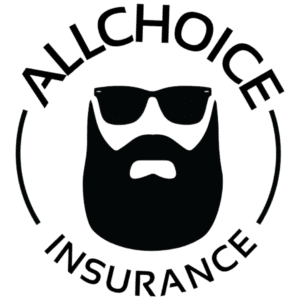What are the requirements for disability insurance?

When most people think about insurance, they think in terms of health insurance, car insurance, and life insurance policies. If you’re a homeowner, you probably have a homeowner’s insurance policy as part of your mortgage agreement; if you’re a frequent flyer, you may have looked into the pros and cons of travel insurance policies.
What about short-term disability insurance? Many people don’t take the time to think about this important insurance coverage—and some people don’t even know it exists.
Haven Life recently added short disability coverage to its roster—so here’s what you need to know before you apply. We’ll look at the requirements for disability insurance, what short-term disability insurance does and doesn’t cover, and how to decide whether short-term disability insurance is right for you. We’ll also dive into how disability insurance works, but the short version is that it’s designed to help protect your income if you become too sick or injured to work, which is why you should apply now before you need it.
What is Haven Disability?
Haven Disability is income insurance to help you maintain financial stability for up to a year while recovering from an illness or injury that prevents you from working. Think of it as an additional layer of protection—for yourself, for your loved ones, and for a portion of your paycheck.
“We want to help people who are going to miss a mortgage payment, a rent payment, or a car payment,” explains Kaitlin Baranowski, Haven Disability Product Owner. “We provide financial stability when those paychecks are no longer coming in.”
Haven Disability can replace up to 60 percent of income for people who qualify at full eligibility. The application process is simple and can be completed entirely online in minutes—with no doctor’s appointments required. This makes Haven Disability an easy and affordable way to help protect your family.
How much does Haven Disability cost? Premium rates vary, but a 35-year-old man in good health could take out a short-term disability policy with a $3,000 monthly individual disability insurance benefit for as little as $27.49 per month.
“Our short-term disability insurance provides a temporary income replacement during an unexpected injury or illness,” says Baranowski. If that sounds like something that could benefit you and your loved ones, it might be worth taking the time to apply.
What are the requirements for disability insurance?
To qualify for a Haven Disability insurance policy, you need to be between 18 and 55 years old, actively working at least 25 hours per week, and earning at least $30,000 annually. You also need to be working directly for an employer in a traditional W2 job.
In addition to requiring proof of employment, Haven Disability requires applicants to meet basic qualifying health standards. Certain categories of employment, such as pilot and professional athlete, are excluded from coverage.
“We do have a few occupation limitations,” says Baranowski. “Construction workers, for example, are not covered due to the higher risk associated with that job category. However, we cover many other occupation categories and job roles.”
What does disability insurance cover?
Haven Disability is designed to cover unexpected injuries or illnesses that are serious enough to cause you to miss work. (And it turns out that illness — not injury — is the cause of 90% of disability insurance claims, according to the Council for Disability Awareness.1)
Haven Disability insurance coverage does not include injuries or illnesses related to a pre-existing medical condition that has already caused you to become disabled. (You can still receive coverage if you have a pre-existing medical condition that caused you to become disabled in the future, but there will be an extended waiting time for you to be eligible for coverage.) Haven Disability insurance also does not cover short-term workplace absences related to planned events such as scheduled surgeries or pregnancy and delivery.
Since coverage only applies to unforeseen, disabling events that are complicated enough to require a physician’s care—including complications related to COVID-19—it’s a good idea to get your short-term disability coverage in place in advance. “You should consider purchasing a short-term disability policy before you are in a situation to need it,” explains Monica Santos of Haven Disability marketing.
In some ways, buying disability insurance is like buying car insurance—it’s the kind of policy you want to get as soon as you have something you need to protect. “Just like you want to have car insurance in place before you potentially have an accident, disability insurance works in a similar way,” Santos says. “You want to make sure you have it before you potentially need it. Not after.”
Is Haven Disability right for you?
If you are a member of the traditional workforce, it’s worth asking yourself whether it’s time to invest in short-term disability insurance. In some cases, you may be able to take out a short-term disability policy with your employer—but many employees no longer have that option. After the Great Resignation, many employers cut benefits such as short-term disability insurance, making it harder to get the income protection you might need if you were to experience an unexpected illness or injury.
Haven Disability, on the other hand, is designed to provide affordable short term disability coverage so that you can continue to pay the expenses that matter most—and the application process can be completed entirely online, making it easier than ever to secure the kind of short term disability policy that can help protect yourself and your loved ones. After all, short-term disability insurance only works if you get your policy in place before you need it.





